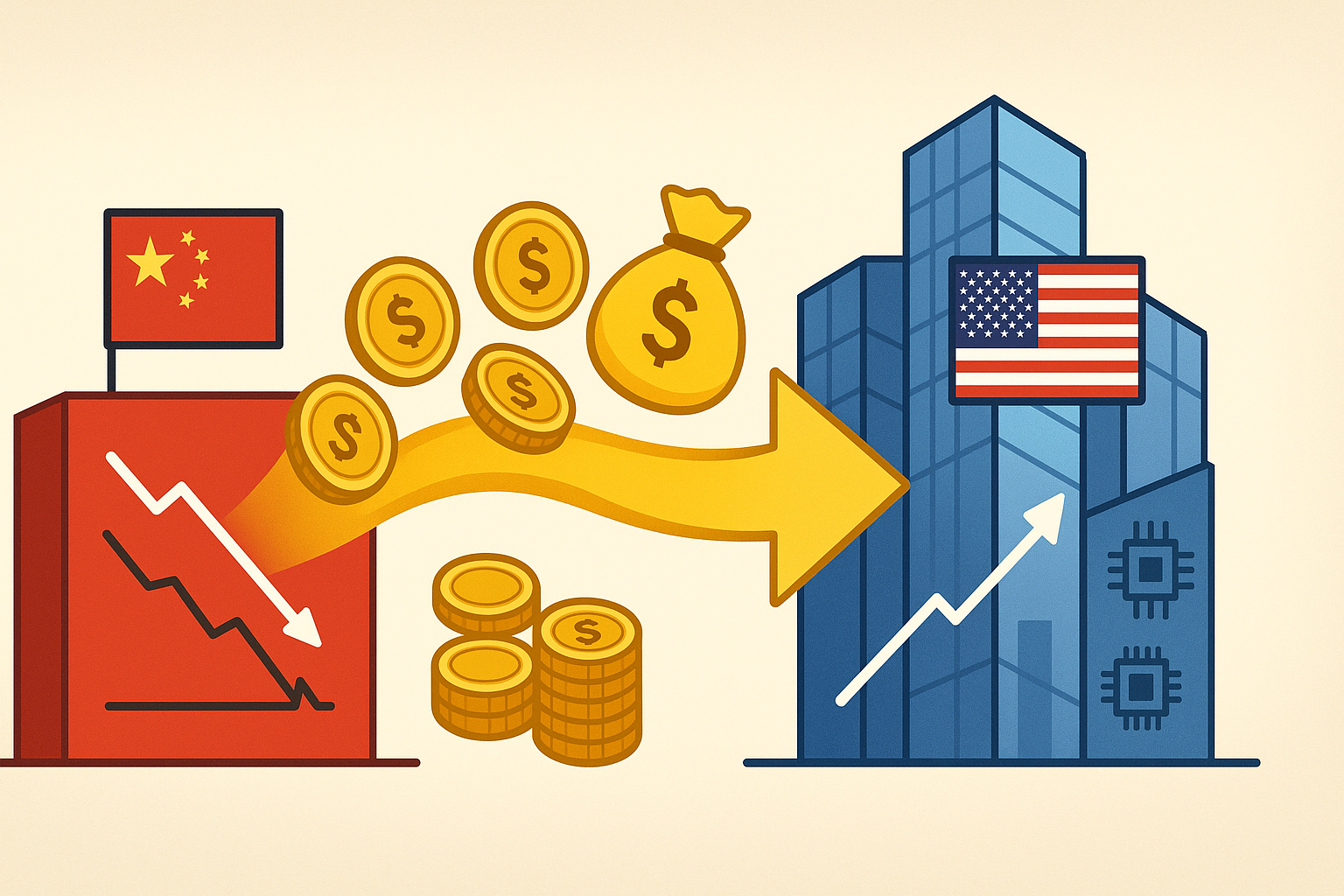Well, this is awkward. Bridgewater Associates just ghosted China's entire stock market.
The world's largest hedge fund has liquidated—completely wiped out—its $1.41 billion worth of Chinese stock positions. We're talking sixteen different holdings, gone. Vanished. As if Ray Dalio suddenly discovered something nasty in his financial fortune cookie.
What makes this particularly fascinating (at least to market nerds like me) is the whiplash-inducing reversal from Bridgewater's previous position. Just months ago, they'd pumped up their Alibaba stake by a mind-boggling 3,360%. Now? They've dumped every last share.
This isn't your garden-variety portfolio rebalancing. It's more like watching someone sprint out of a building right before... well, let's not finish that metaphor.
Look, Dalio has been China's most prominent Western fanboy for years. He's written books about its history, appeared at Chinese economic forums, and generally maintained what can only be described as an intellectual crush on the country's economic model. When a guy that committed suddenly cuts all ties, it's worth paying attention.
I've covered institutional investment trends since 2016, and this kind of dramatic pivot usually signals something deeper than tactical maneuvering. It's a strategic reassessment—a fundamental "we need to talk" moment in the Bridgewater-China relationship.
So where's all that money going instead? Straight into American tech giants. Bridgewater didn't just leave China; it immediately doubled down on the U.S. innovation machine—boosting its Nvidia position by 154%, while significantly increasing stakes in Microsoft (+112%), Alphabet (+84%), and Meta (+90%).
This feels... significant.
For years (decades, really), the investment case for China followed a predictable script: "Yeah, there are challenges, but can you really ignore 1.4 billion consumers?" That logic—paired with China's explosive growth—kept Western capital flowing through countless periods of tension.
Has the calculus finally changed?
The timing certainly raises eyebrows. U.S.-China trade tensions have heated up again, though the recently announced 90-day tariff truce provides a temporary breather. But Bridgewater's move feels less like a reaction to headlines and more like a response to something structural.
(Side note: I spoke with three institutional investors last week who mentioned increasing discomfort with their China exposure. None would go on record, naturally, but the unease was palpable.)
The ripple effects could be substantial. Major funds watch each other like nervous teenagers at a dance. When the biggest, most China-positive player heads for the exit, others inevitably question their own positions. It's the financial equivalent of seeing the cool kids abandon a restaurant—suddenly everyone's checking Yelp reviews and wondering what they missed.
There are two ways to read this—either as a temporary tactical retreat during uncertain times, with plans to re-enter when skies clear... or as a fundamental reassessment of China's place in Western institutional portfolios.
I'm leaning toward the latter.
Between regulatory unpredictability, geopolitical tension, demographic headwinds, and property market troubles, China's risk-reward equation seems to have shifted. Then there's the AI gold rush driving American tech valuations to the moon. If you're Bridgewater, why wrestle with Chinese regulatory roulette when you could ride the Nvidia rocket ship?
This doesn't spell doom for Chinese markets. Domestic capital remains plentiful, and plenty of international investors still see opportunity. But it does suggest we're witnessing a significant recalibration.
The million-dollar question: Is Bridgewater an early mover in a broader exodus, or making a huge contrarian mistake they'll regret later? Financial history provides plenty of examples of both brilliant pivots and embarrassing panic sells at precisely the wrong moment.
Here's another way to think about it—Bridgewater isn't just selling stocks; it's buying flexibility. By exiting now, they maintain the option to re-enter later while avoiding whatever turbulence might lie ahead. That optionality comes with a cost—missing potential rebounds—but clearly they've decided that premium is worth paying.
In finance, as in dating, dramatic breakups often leave both parties claiming they're better off. Sometimes that's even true.
We'll be watching to see who gets the last laugh.
